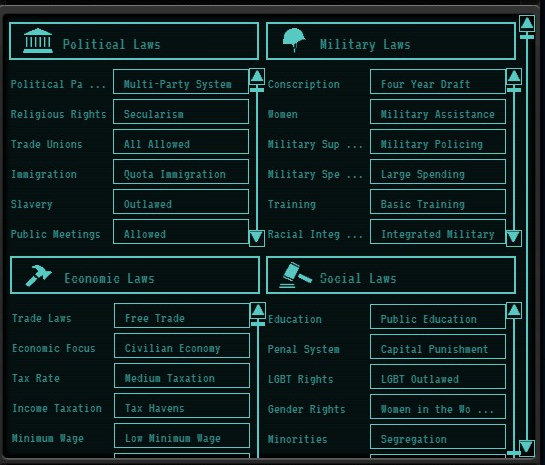

However, as we have come to expect from Paradox titles, in-game flavour is severely lacking at the moment.

This greatly assists the replayability of the game by offering a variety of playstyles.

On the flip side, authoritarianism will increase turmoil but ensure that you have an abundance of authority to implement edicts within your nation. Granting freedoms such as the right to speak freely will create a happier society, whilst reducing your own authority. Social welfare will boost the standard of living in your nation but will prove very damaging to your economy as you try to maintain the increasing welfare costs. What Victoria 3 does well is that everything has its positives and negatives. You can deliver a Socialist utopia to your citizens, or go down the route of unrestricted freedom, both in terms of society and economics. Perhaps you’ve woken up in a bad mood and want to take an authoritarian approach and implement a heavily authoritarian society where not only is your population not allowed to vote, but they are actively monitored and suppressed. You can maintain the status quo and decide that your citizens are better off not being allowed to vote. There’s some flexibility in how you want to approach the political fabric of your nation. The population won’t have much in the way of freedoms, and access to health and education will also be an unheard of concept. Voting is either non-existent or heavily restricted. The overwhelming majority of nations at the start of the game start of as solidly conservative ones. Politics plays an important role in Victoria 3.
#VICTORIA III RATING FULL#
The Victorian Era is full of enough turbulence that this short game still feels like an engaging one. It does leave you wanting more, yet there’s not a feeling that it hasn’t offered enough. Focusing on just one era gives the game a solid direction from beginning to end. Victoria 3 differs from other Paradox games by not feeling stale towards the latter stages of the game. A small nation of a couple hundred thousand people could easily now be a nation full of millions of people, each with their own required needs that change as the population becomes wealthier and more demanding. The character of your nation will most likely have changed. Victoria 3 excels in portraying the advancement of the world during industrialization. It does feel that no sooner has the game started than you’ll be approaching the end, even with the extended passage of time compared to Victoria 2. Victoria 3 doesn’t have that same essence. It’s a short timeframe but it’s a game that is required to be played slowly. Hearts of Iron gets away with this because it is a game that requires strategic planning and constant adaptation. There’s a fair argument that the gametime is really short when compared to other titles. Think Hearts of Iron IV rather than Europa Universalis IV. This isn’t a typical Paradox game that spans for centuries. For those that struggle with maths, that’s one hundred years of gameplay. The game takes place from 1836 until 1936. It really is up to you whether your nation successfully navigates the industrialization of society, or whether you collapse underneath the weight of your own ambitions. In Victoria 3 you’ll handle everything that the Victorian era has to offer. Underneath the frustration, there is still a really good game here. This is Paradox Interactive’s most ambitious game yet. Some features are frustrating and there are aspects of the game that don’t fully make sense why they are happening. It doesn’t fully master everything it is trying to accomplish. Victoria 3 is a tremendously in-depth game.


 0 kommentar(er)
0 kommentar(er)
